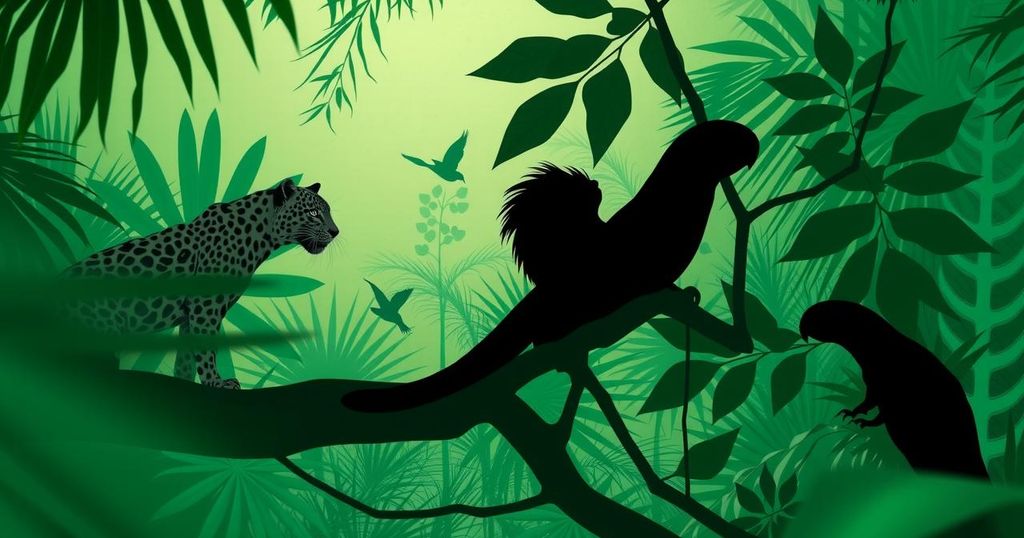M23 Rebel Group Claims Control of Goma, Fears of Expanded Conflict Rise
M23 rebels claim control of Goma, leading to panic among residents and disputes with the DRC government over the city’s status. Heavy fighting continues, resulting in significant displacement and casualties. International scrutiny on Rwanda’s alleged support for M23 has increased, as fears grow of a broader conflict in the region amidst ongoing humanitarian crises.
The M23 rebel group has claimed to have taken control of Goma, the largest city in eastern Democratic Republic of Congo (DRC), amidst ongoing military tensions. This assertion has been met with dissent from the DRC government, which maintains that its forces still hold significant areas, including the airport. Meanwhile, panic ensues within Goma as residents witness heavy artillery fire and escalating violence.
In a recent statement, M23 spokesperson Lawrence Kanyuka urged the people of Goma to remain calm, asserting that the city’s liberation was successful. Reports from the United Nations indicate mass panic, further intensified by suggestions that members of the DRC’s Armed Forces are surrendering. Some soldiers appear to have abandoned their posts in light of the rebel advance.
Videos are circulating that allegedly show M23 rebels patrolling key areas of the city, including the airport, which is reportedly unusable for humanitarian operations. The U.N. expressed urgency regarding the situation, claiming that peacekeepers and civilians remain trapped. The DRC government’s stance is in direct contradiction, reaffirming that their forces maintain control over crucial locales.
The ongoing conflict in Goma comes as the DRC experiences a dramatic increase in displacement due to fighting. Since the year began, over 400,000 individuals have been uprooted, with a significant surge of over 178,000 within the last two weeks alone. Casualty reports include the death of North Kivu’s military governor who was killed amid combat.
The M23 group’s origins date back to 2012, primarily comprising Tutsi fighters. Rwanda is alleged to provide support to M23, a claim Rwanda denies while insisting that the DRC is responsible for regional instability. The U.N. has urged Rwanda to cease its support for the rebels and withdraw its troops, which have reportedly influenced the conflict’s dynamics significantly.
United Nations peacekeepers are currently active in the region, facing intense fighting, while other military forces, such as those from the Southern African Development Community, have struggled to contain the escalation. The alarming developments in Goma signal potential wider conflict involving the DRC and Rwanda, thereby exacerbating an already dire humanitarian crisis affecting millions.
This situation emphasizes the complexities of the ongoing conflict in the DRC, a region with a long history of violence linked to resource control. As tensions mount, the fear remains that the unrest may extend beyond Congo’s borders, threatening regional stability.
The conflict in eastern DRC has persisted for over three decades, fueled by longstanding issues related to resource control and ethnic tensions. The M23 rebel group emerged in 2012 with the purported aim of defending the Tutsi population within the DRC, a community historically targeted in conflict. Recent violence reflects the intricate dynamics between local forces and external influences, particularly with allegations of Rwandan support for M23.
The reported capture of Goma by the M23 rebel group marks a pivotal moment in the ongoing conflict in eastern DRC, raising alarms about an expanded regional confrontation. As the DRC government asserts control over key areas and humanitarian conditions worsen, it is imperative for international actors to intervene and help restore order. The ability to stabilize the situation hinges upon addressing both immediate security concerns and the long-term underlying issues contributing to the conflict.
Original Source: www.twz.com




Post Comment